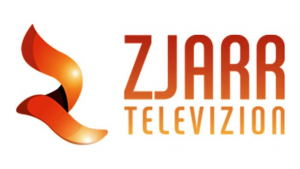FROM Prenç Zogaj
As next year’s parliamentary elections appear ever closer on the horizon, for the Albanian opposition there is less and less time to organize around a winning political formula that would enable the rotation of power in the country, after the Party’s twelve-year dominance Socialists of Rama.
The challenge is difficult, the reasons are in the sunlight. But not impossible, if there will be will, vision, sacrifices, readiness of each of the opposition subjects to adapt to the re-politics of the period, embracing solutions that put the interest of power rotation over the narrow interests of parties and persons.
A prerequisite for victory – not the victory itself – would have been the withdrawal of Berisha after the deep defeat in the local elections of May last year to allow the Democratic Party to unite through an inclusive electoral process and with a new leadership .
Apart from a utopia in the conditions when Berisha supports the future of the Reestablishment led by him on a multitude of world-dependent excuses, this solution, as time goes on, becomes less and less effective in relation to next year’s elections. However, let’s not be surprised.
At the moment, instead of a union like the one we showed above, the idea of the opposition Federation has come to life. It is centered around the Re-establishment group, around which several small opposition parties have gathered, where Ilir Meta’s Freedom Party and, of course, Fatmir Mediu’s PR and Agron Duka’s PPA stand out as its initiators.
No contribution should be prejudiced. On the contrary. Respect for anyone who thinks how to get out of the political impasse. But the truth must be told as it is. From the composition, beyond the labels, the Federation or Confederation is the Opposition of the 2021 elections minus the official DP of Basha, the LZHK of Dashamir Shehi and the PDIU of Shpëtim Idrizi. With president Sali Berisha this time. As such, this Federation was voted in the partial local elections of March 6, 2022, in the elections for mayoral candidates in the national localities of May 2023 and in the partial elections in the Kukës and Rrogozhin Municipalities during 2023. The results are known.
In terms of numbers, the Federation simply celebrated the increase in the number of Reestablishment deputies with the deputies of Gazmend Bardhi’s group. That had happened before “de facto” in a series of attitudes and actions in parliament and outside it. But it was also evidenced as a propaganda (PR) operation, successful I would say, on the eve of the February 20 protest.
Unity in diversity is a value of right-wing parties. A political identity is strengthened through disagreement, writes the prominent conservative philosopher, Roger Scruton in his book “How to be right-wing”. In the same book, he exalts the value and irreplaceable role of the thinking individual, asserting that the right is often on his side and not the conformist majority. If he had kept in mind these postulates and many other values like these, the Democratic Party would not have fallen into the crisis it has been in for years and would not have enabled such a massive entrenchment in power of the party derived from the Party of Work.
A value must be true in application, otherwise it does not stick, it becomes demagogic. Unity in diversity remains just a slogan if it does not find expression in the statute of the political entity itself, where the representation of the faction in forums, in the parliamentary group and in the eventual government of the respective party is sanctioned with clear rules and clear measures.
Meanwhile, while MPs are free to go from one group to another, to create their own group, or to remain independent, political union makes sense when it comes to separate subjects, each on their own account, that have been voted as subjects or they are waiting to be voted in the next elections. In the part of the opposition that was covered by the DP before the split, such are the Reestablishment of Berisha and the official DP of Basha. Their union under the conditions of some impassable dividing lines that have created the division and are still in force, means that the Democratic Party of Basha joins and unites “in diversity” with the Reestablishment. If it were to become real, this hypothetical act could not pass without the price paid in public by the extreme denaturation. Consequently, it would not have the expected effects.
The situation, the fragmentation, the very way of doing opposition, the diametrically opposite positions on many issues, such as those on SPAK and the new justice for example, are such that they go beyond the normal diversity within a political subject. The union in ignorance of these realities would be mechanical, for mainly petty interests of small groups, of one and the other leaders. Meanwhile, it should not be forgotten that the subjects of the opposition archipelago, from the largest to the smallest, have almost never rotated in their direction. They have the name of private parties of eternal heads. The alternative through which they think to come back to power is to upset the citizens with the long-term government of the opponent. Ugly that there is no alternative. Which has worked once or twice but is unlikely to work again. It is not for nothing that the majority of sixty percent of citizens who are against Rama’s government are not with any of the opposition entities and leaders. If the latter have closed their heads with the door “vote for us, or kill yourself”, they, insulted by this extreme cynicism, stay aside, wait, run away from Albania.
Under these conditions, the union of opposition political subjects as they are does not increase the opposition. At best I leave it in place. Rama also has in his box the minority voters who support the government. Which become a majority from the vacillation, desertion and abstention of the voters of the anti-government majority. The challenge of the opposition is to lead to the elections and the vote of the actual majority of the opposition people.
I think that the most likely formula to meet this challenge is the institutionalization of plural opposition. Or in other words, the recognition of the reality of the plural opposition by the subjects of the opposition spectrum themselves.
By the word institutionalization I mean the transition from the state of war to the state of healthy competition within the spectrum, where each subject grows by itself, having as a common objective announced the rotation of power; the agreement on the main points of changes in the electoral code, the agreement on the way of competing in the elections in function of the valorization of each vote, the agreement on a universally accepted candidate for prime minister who will also be the coagulating axis of the programmatic approaches of the subjects.
Institutionalization would enrich the plural opposition with other valuable elements. Among the many examples of the victory of the elections through the plural opposition, from history and actuality, let them bring to attention the qualification of Ulliri in Italy, which united around the name of the well-known Romano Prodi as a candidate for prime minister.
All this effort also means a plan B of each of the two PD groups, in respect or as a consequence of the decision of the Court of Appeal on the logo.
The popular opposition in Albania, the majority in numbers, represents a variety of approaches and preferences for the way of doing opposition. The plural opposition would be the reflection of this diversity. As such, in the sum of the numbers, it only increases the opposition, it only increases the votes in the box. In other words, there is a real chance of making it a winner.












